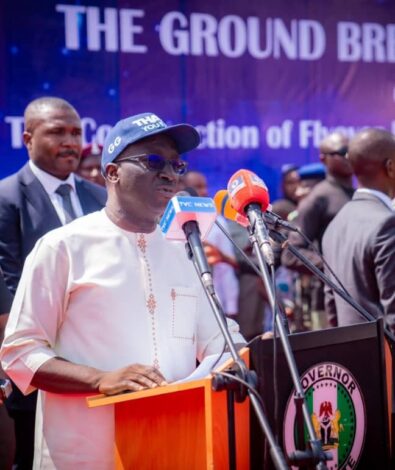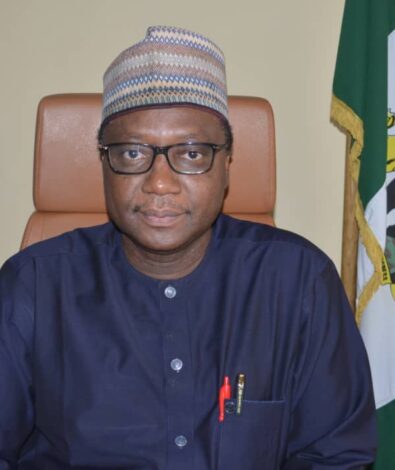Shettima tasks governors to intensify efforts to end open defecation in 5 years

Vice-President Kashim Shettima has urged governors across Nigeria’s 36 states to intensify efforts to eradicate open defecation within the next five years.
He made this appeal on Tuesday during the 5th anniversary of the “Clean Nigeria: Use the Toilet” campaign and the launch of the Revised Strategic Plan held at the Banquet Hall of the Presidential Villa, Abuja.
Represented by the Deputy Chief of Staff to the President, Senator Ibrahim Hadejia, Shettima emphasized the need for state governments to mobilize high-level political support for the initiative, particularly at sub-national levels.
He highlighted the immense economic potential within Nigeria’s sanitation sector, stating that aligning these opportunities with the renewed hope agenda of President Bola Tinubu’s administration could create jobs, provide alternative energy sources, and produce biological fertilisers.
“It is against this background that the need to re-strategise the critical elements that will progressively increase our level of advocacy and awareness came to be,” he said.
Shettima described the newly launched Strategic Plan for the Clean Nigeria Campaign as a comprehensive actionable framework for Clean Nigeria that will help to actualise the call for reasonable access to the use of toilets by the year 2030.
“I urge State Governors to provide the necessary support to drive the campaign at the State and Local Government Areas levels to achieve our target of an Open Defecation Free Nigeria within the next five years,” he added.
Public health and environmental hazards
Shettima cautioned against the hazards of open defecation, describing it as a “critical public health and environmental issue” that contaminates water sources, spreads diseases, and negatively impacts the quality of life, education, and economic productivity of the populace.
He emphasized the disproportionate impact on vulnerable groups, including women and girls, citing the risks posed by inadequate sanitation facilities.
Federal Government’s commitment to SDG 6.2
The Vice-President, therefore, reiterated that the Tinubu administration was committed to the bid to end open defecation in Nigeria.
“The present administration is committed to the call for Open Defecation Free in Nigeria, as part of measures to meet the Sustainable Development Goal 6.2 target aimed at contributing to building a healthy and thriving nation.
“We are all aware that the Federal Government through the Federal Ministry of Water Resources and Sanitation rolled out several initiatives to bridge the existing gap of inadequate basic sanitation services,” Shettima assured.
Shettima applauded the support of stakeholders, especially governors, local government Chairmen, national and state legislators, members of the international community, development partners, the private sector, civil societies, and the media.
Progress and challenges in the Clean Nigeria Campaign
In his remarks, the Minister of Water Resources and Sanitation, Prof. Joseph Utsev, said the 5th anniversary of the Campaign aligned with the World Toilet Day.
According to him, the day is set aside by the UN to accelerate the drive towards Open Defecation Free in countries around the world.
He recalled that the “Clean Nigeria: Use the Toilet” campaign was launched in 2019 under the national programme to end open defecation in Nigeria and is backed by Presidential Executive Order 009.
Utsev explained that the campaign was informed by the unfortunate position of Nigeria as one of the countries with the highest number of people practicing open defecation, estimated at 48 million persons.
“It is a transformative movement to end open defecation in Nigeria and since its commencement, appreciable progress has been made over the past few years, with 135 LGAs having attended an Open Defecation Free status.
“More State Governments and Local Government Areas are currently undergoing a verification process in line with the National Protocol on Open Defecation Free, and over 30,000 other communities were certified as ODF.
“Despite all these attainments, the progress rate appears grossly inadequate compared to the Campaign target date of 2025, which expects nationwide advocacy”.
Stakeholder support key to success
Shettima and other speakers, including Senator Eze Emeka, Chairman of the Senate Committee on Water Resources, thanked the federal government for coming up with the campaign for clean water and ending open defecation.
He commended the government through the Ministry of Water Resources and Sanitation for coming up with the initiative of sustaining the campaign and setting the target to end the menace in 2030.



